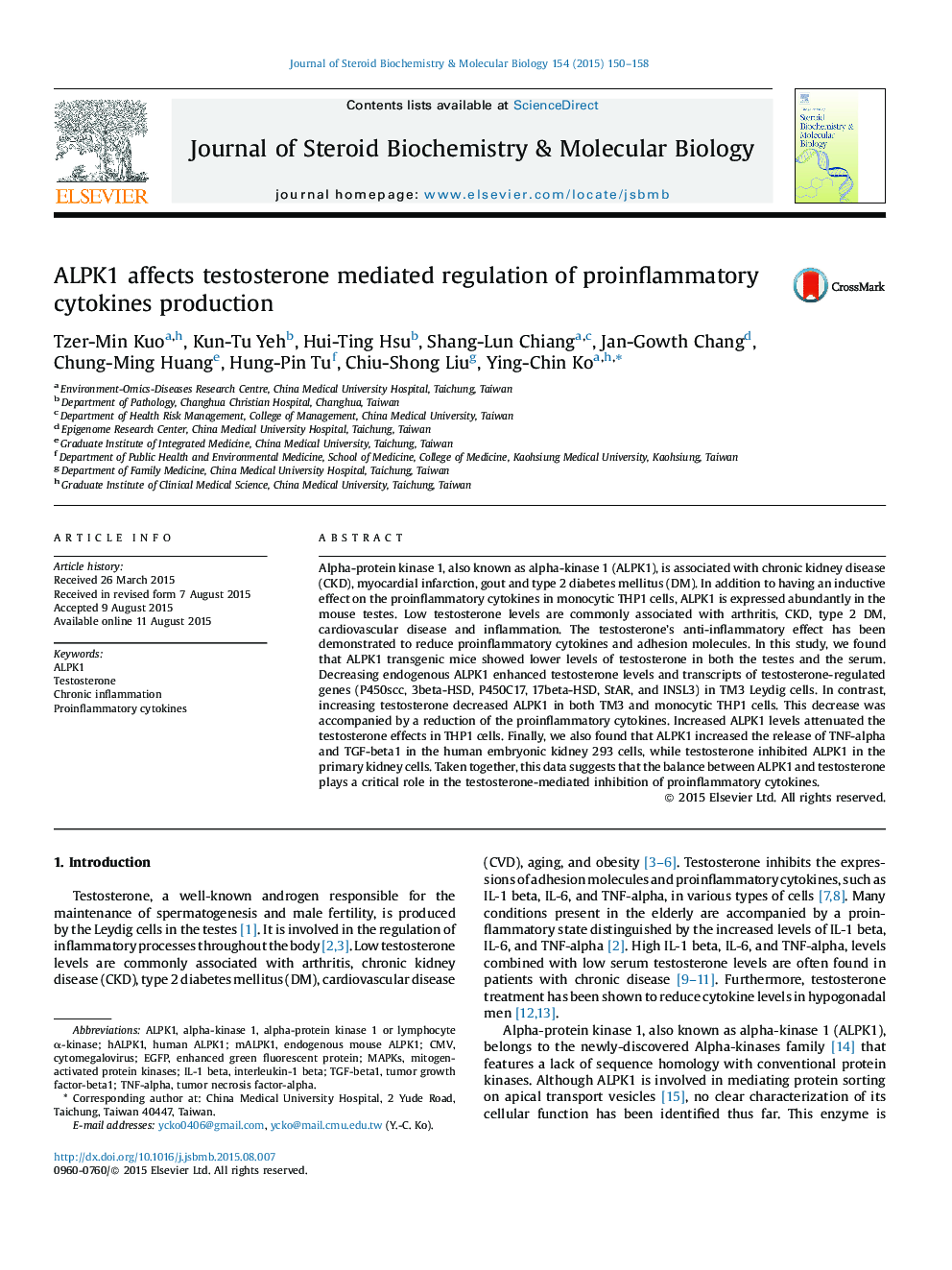| کد مقاله | کد نشریه | سال انتشار | مقاله انگلیسی | نسخه تمام متن |
|---|---|---|---|---|
| 1991310 | 1540995 | 2015 | 9 صفحه PDF | دانلود رایگان |

• ALPK1 transgenic mice show lower levels of testosterone in the testes and serum.
• Knockdown of ALPK1 increases testosterone production in the TM3 Leydig cells.
• Knockdown of ALPK1 increases levels of the genes related to testosterone regulation in the TM3 cells.
• Testosterone decreases ALPK1 in the TM3, monocytic THP1 and primary kidney cells.
• Increased ALPK1 reduces testosterone effects on proinflammatory cytokines production in the THP1 cells.
Alpha-protein kinase 1, also known as alpha-kinase 1 (ALPK1), is associated with chronic kidney disease (CKD), myocardial infarction, gout and type 2 diabetes mellitus (DM). In addition to having an inductive effect on the proinflammatory cytokines in monocytic THP1 cells, ALPK1 is expressed abundantly in the mouse testes. Low testosterone levels are commonly associated with arthritis, CKD, type 2 DM, cardiovascular disease and inflammation. The testosterone’s anti-inflammatory effect has been demonstrated to reduce proinflammatory cytokines and adhesion molecules. In this study, we found that ALPK1 transgenic mice showed lower levels of testosterone in both the testes and the serum. Decreasing endogenous ALPK1 enhanced testosterone levels and transcripts of testosterone-regulated genes (P450scc, 3beta-HSD, P450C17, 17beta-HSD, StAR, and INSL3) in TM3 Leydig cells. In contrast, increasing testosterone decreased ALPK1 in both TM3 and monocytic THP1 cells. This decrease was accompanied by a reduction of the proinflammatory cytokines. Increased ALPK1 levels attenuated the testosterone effects in THP1 cells. Finally, we also found that ALPK1 increased the release of TNF-alpha and TGF-beta1 in the human embryonic kidney 293 cells, while testosterone inhibited ALPK1 in the primary kidney cells. Taken together, this data suggests that the balance between ALPK1 and testosterone plays a critical role in the testosterone-mediated inhibition of proinflammatory cytokines.
Figure optionsDownload as PowerPoint slide
Journal: The Journal of Steroid Biochemistry and Molecular Biology - Volume 154, November 2015, Pages 150–158